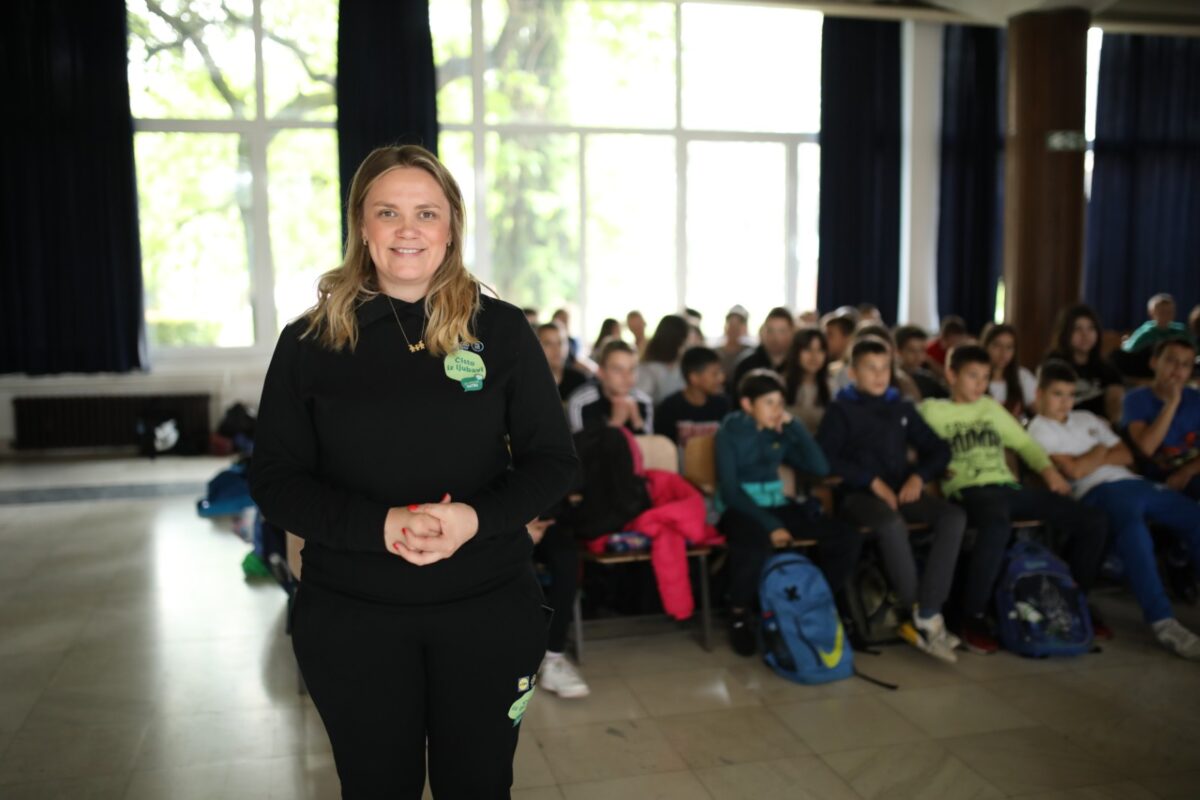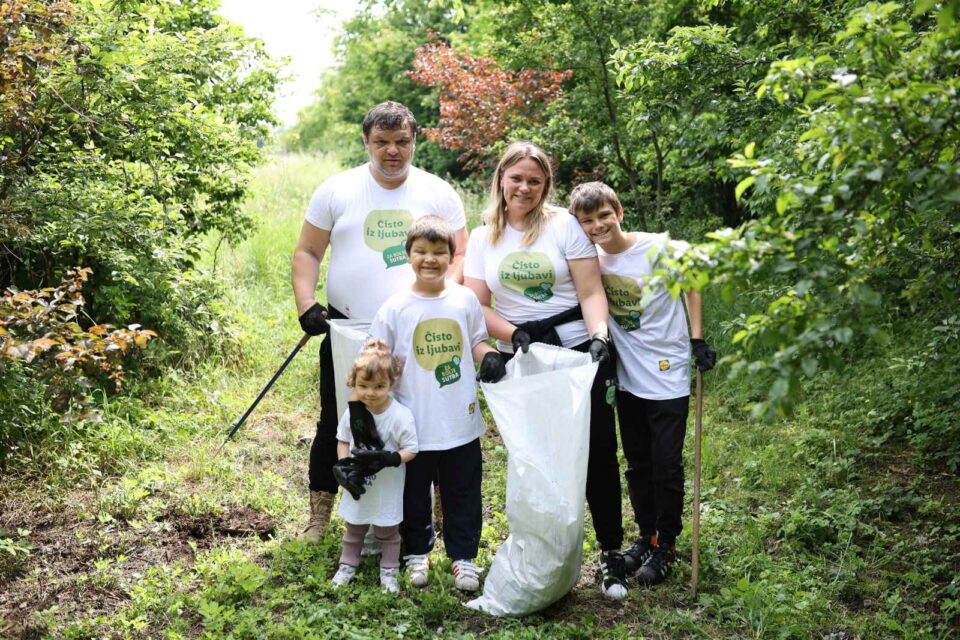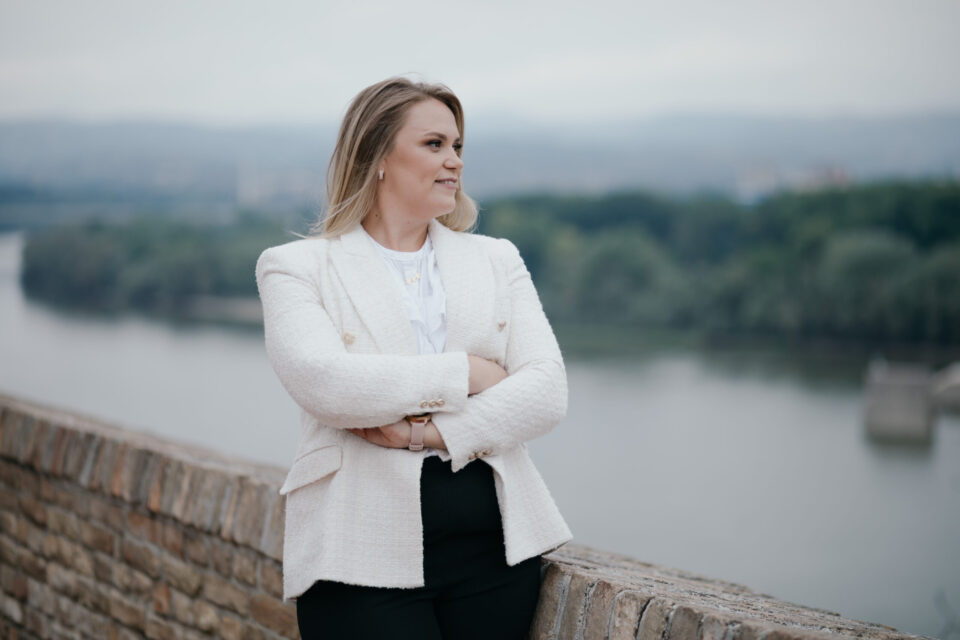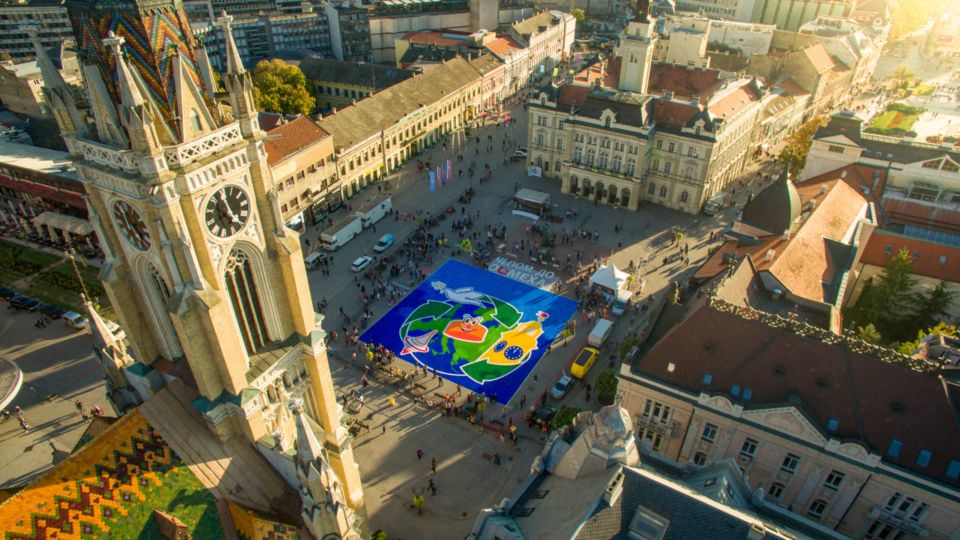Without activism, society can hardly persevere in real changes in the community
 We spoke with Vanja Petković, the president of the citizens’ association Čepom do Osmeha (From Bottle Cap to Smile) and a doctorand in environmental protection, about the biggest volunteer campaign in Serbia and people’s environmental awareness.
We spoke with Vanja Petković, the president of the citizens’ association Čepom do Osmeha (From Bottle Cap to Smile) and a doctorand in environmental protection, about the biggest volunteer campaign in Serbia and people’s environmental awareness.
Where did the motivation to start and then promote the bottle cap collection campaign come from?
As a student of environmental sciences, I travelled around Europe and saw a similar campaign in Slovenia. Considering during my high school and university studies I was the initiator of charity activities, I decided to immediately join the campaign.
The beginnings were amateurish. I sent bottle caps by bus to Slovenia. Relatively quickly, a large number of individuals supported the idea and the quantities of collected bottle caps could no longer fit in shopping bags. Given that this idea was disseminated with the support of my family, that is my husband, we launched a campaign in Serbia. To date, this has been the biggest, long-term volunteer campaign in Serbia. So far, thanks to 1,400,000kg of collected plastic bottle caps, we have provided 85 aids for children with disabilities. We also made the largest bottle caps mosaic, breaking the world record.
 Is activism often an underestimated category?
Is activism often an underestimated category?
Without activism, society can hardly persevere in real changes in the community. Today, my initiative gathers over 7,000 active volunteers, has 10,000 boxes for collecting bottle caps, and 25 active coordinators who, thanks to their goodwill and without monetary compensation, contribute to the campaign developing and lasting for this long.
Their enthusiasm and drive are a great incentive and they are the initiators of changes in their environment.
We are proud of our achievements so far, which include inclusive children’s playgrounds and environmentally friendly islands. We have been given numerous awards and recognitions. But the best thing is that people from vulnerable categories are provided for and allowed to contribute to the community and be included in society.
Is formal and informal education (training sessions, workshops) a way to change awareness of the importance of the environment and its protection?
As a mother of three children, I believe that children and young people are our main driving force. We conducted more than 100 workshops, with over 100,000 children participating. We teach our youngest that change lies in individuals and that their activities can directly improve the state of the environment.
I am a pediatric nurse and an ecologist with a bachelor’s degree, a master’s degree in environmental protection, and a doctorate in environmental protection.
ACZOR is not only a place of learning, but also an incubator for innovation, where young enthusiasts, activists, and scientists develop ideas that will shape the world
The topic of my doctoral dissertation deals with the development of social entrepreneurship in environmental protection, which requires the co-mentorship of two different faculties, the Faculty of Philosophy and the Faculty of Science and Mathematics.
We have recently established the Academic Centre for Environmental Protection and Sustainable Development (ACZOR), which is a result of many years of work in the Čepom do Osmeha Association.
ACZOR is not only a place of learning, but also an incubator for innovation, where young enthusiasts, activists, and scientists develop ideas that will shape the world. Here, knowledge and action, theory and practice, education and engagement intertwine. In the Centre, we are determined to bridge the gap between academia and decision-makers, connecting the education system with the real needs of society and the economy.
 What are the challenges facing Serbia regarding the environment and ecology? How can we overcome these challenges?
What are the challenges facing Serbia regarding the environment and ecology? How can we overcome these challenges?
We must be aware that changes in the environment cannot be done overnight, and that it is important to lay a good foundation and conduct analyses, impact assessments, and studies to adequately approach the problems.
Recently, efforts have been made to improve and resolve problems, however, we must take continuous action, including additional measures, incentives, and penalties for inadequate behaviour, both by companies and individuals, as well as invest more in the education of people. Also, to replace modern technologies with those that have reduced or no negative impact on the environment.
The key lies in dialogue, which is the foundation for improving environmental protection. Through the open exchange of ideas and opinions, we can identify problems, develop an effective strategy, and mobilize the community to action. Only with the joint effort and engagement of all stakeholders can we achieve real changes and save our planet for future generations.
